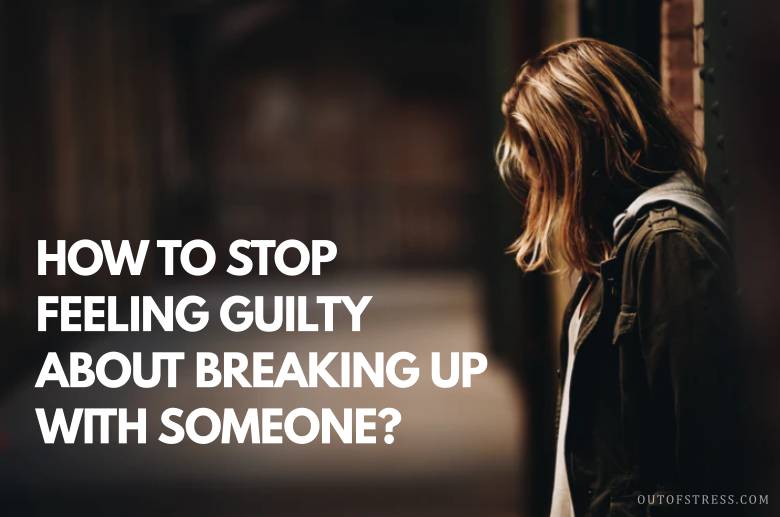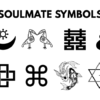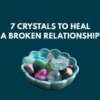
Breaking up with someone is never easy, especially when you know that the other person is still in love with you. So how do you deal with feelings of guilt that can arise in such a situation? We asked 8 experts this question and got some really insightful answers.
So if you are dealing with guilt and don’t know how to deal with it, here’s what you should do to let go of it and free your energy.
1. Focus your energy into your new life
Let’s face it, breaking up sucks, regardless of whose idea it was. But what if you are the one who told your partner it’s over and then suddenly you’re drowning in guilt? Of course you feel bad because you just hurt the person who really loves you but what about you?
You have to stop and think about yourself in this equation. Ask yourself these questions?
- Were you happy?
- Can you see yourself with this person in another 2, 5 or 10 years?
- Is there something missing in this relationship that you know you need to be fulfilled or content?
- Will your life be better without this person?
You have to stop and take into account YOUR life and the value you place on your goals, dreams, ambitions and your happiness. Obviously something was missing in this relationship otherwise you wouldn’t have ended it. It’s important to always do what is right for you. You are the only person who matters in any relationship.
If you aren’t happy then what’s the point? Your partner probably isn’t happy either so why should two people spend the rest of their lives together unhappy? It just makes no sense.
And I get that you’re still going to feel bad for hurting your partner after is said and done, but focus your thoughts and energy into your new life and go do the things you want to do that will bring you joy.
It’s all about you now, babe!
 Iva is a retired hairstylist turned self help blogger from Northern Ontario Canada living a life of freedom, peace and joy in sunny Guatemala. Her two main goals in life are to inspire people around the world with her blogs and to feed hungry little bellies in the poor town she now calls home. You can check out her new self help mini series You Are Amazing or head on over to her website and sign up for weekly in your face inspiration!
Iva is a retired hairstylist turned self help blogger from Northern Ontario Canada living a life of freedom, peace and joy in sunny Guatemala. Her two main goals in life are to inspire people around the world with her blogs and to feed hungry little bellies in the poor town she now calls home. You can check out her new self help mini series You Are Amazing or head on over to her website and sign up for weekly in your face inspiration!2. Reflect, Remember & Release
Guilt, like shame, doubt and embarrassment, is considered a self-conscious emotion. It is self-conscious in the sense that it includes feeling excessive awareness of oneself or one’s actions. Simply put, guilt arises when we reflect on our behaviors and make negative appraisals about them and/or ourselves. Guilt does not only occur when we have acted in a certain manner, guilt can also surface when we believe that we’ve failed to act when we should have. Although one may experience guilt in a variety of situations, the feeling is always directed at some failure of the self.
Feelings of guilt after a break are very common, especially if your partner wanted to stay together. However, just because you feel guilty, it doesn’t mean that you should go back to a relationship that you don’t want anymore. To manage feelings of guilt after breaking up with someone I suggest the 3 Rs: Reflect, Remember, Release!
1. Reflect: Reflect on your feelings of guilt and attempt to identify what you feel guilty about. Given that guilt is based on your own internal appraisals, the aspects of the break-up you feel guilty about will be unique to you. Therefore it is important for you to take stock of what thoughts are causing the unwanted feelings and engage in positive self talk to remind yourself that you did what needed to be done and it was best. This leads to our second R.
2. Remember: Remember the reasons you decided to break it off in the first place. Guilt can cause us to second guess our choices or behaviors, creating the perfect conditions for us to forget the undesirable behavior of our ex-partner. Make a list of all the reasons that influenced your decision to break-it off, Truthfully, you might have ended the relationship because you weren’t ready and you need to be reminded of that too. The goal is not to make your ex-partner out to be a monster or demonize them but to remind yourself that you two were not meant to be and that’s okay. Refer to that list as often as needed for as long as necessary.
3. Release: Release yourself from being responsible for your ex-partner. The relationship is over, both of you need to focus on moving forward. You two are no longer in a relationship, therefore you are no longer beholden to their care. As adults you both are responsible for taking care of yourselves emotionally. Release your responsibility to them and refocus that energy on healing yourself.
 Dr. Erica is a licensed clinical psychologist, educator, trainer, community consultant and author in the greater Los Angeles area. Check out her book ‘Dating With Purpose’ on Amazon.com. You can get in touch with her on her website – DocErica.com
Dr. Erica is a licensed clinical psychologist, educator, trainer, community consultant and author in the greater Los Angeles area. Check out her book ‘Dating With Purpose’ on Amazon.com. You can get in touch with her on her website – DocErica.com3. Breaking up simply means that you cared enough about the both of you
The only thing worse than breaking up, is not breaking up when you know you are supposed to. Oftentimes one person stays in a dead end relationship simply because they don’t want to hurt the other person by leaving. The guilt of hurting someone you once cared about can be overwhelming if you don’t know how to deal with it properly. A sure way of getting over the guilt of breaking up with someone, is to first come to the realization of what breaking up is not.
- Breaking up is not committing a crime.
- Breaking up is not disregarding the other person’s feelings.
- Breaking up is not ruining the other person’s life.
- Breaking up is not turning you into a horrible person.
- Breaking up is not the end of the world.
Once you understand this, then you can free yourself from any feelings of guilt that could be weighing heavy on you. Breaking up simply means that you care enough about the both of you that you are willing to go your separate way and trust that there is something better and right for the both of you down the road.
Stop being plagued by the guilt of doing something that was best for the both of you.
 Adonis Lenzy is an author, speaker, TV show host, and pastor and the author of two books Next and Dating in Black and White.
Adonis Lenzy is an author, speaker, TV show host, and pastor and the author of two books Next and Dating in Black and White.4. You have a right to take care of yourself and put your needs first
Often times when we break-up with someone we end up feeling guilty. This is especially true if your ex-partner is begging you to stay, promising to change or to get help (finally). There is inevitably a part of you who feels sorry for someone who is professing his (or her) love for you and who seems so desperate. You may suddenly doubt yourself and your choice to end the relationship.
Here are some things to consider to help you with your guilt:
1. Remember how difficult it was to finally come to the conclusion that you needed to end the relationship: You may have agonized over this decision for months or even years. Remember how it felt to finally make the decision, how liberating it may have felt.
2. Remind yourself of the reasons why you needed to break-up: It’s easy to forget the pain and anger and fear and shame that you suffered at the hands of your ex-partner when he or she is begging for another chance. Your empathy and compassion click in and all you can focus on is the pain he’s going through. This is the time to remember the pain you suffered and the reasons why you finally needed to walk away. Sure, it can be heartbreaking to see someone else’s pain but addressing your own is just as important. And you probably didn’t do this enough during the relationship. I suggest you write down the reasons why you needed to end the relationship and refer to it often.
3. Remind yourself that you have a right to put your own needs first: Yes, it may be painful to your partner to lose you but you can’t make his or her pain more important than yours. The pain you experienced being in the relationship is as important as the pain he now feels because he lost you.
4. Notice how you have been feeling since you broke-up: Have you been feeling more free, less constrained? Have you felt more happiness and joy? Even if you’ve been feeling sad and it has been difficult to let go, pay attention to the positives about being away from your ex-partner. Do you feel freer to see family and friends? Did you get the courage to start looking for another job or to go back to school? Have you started paying more attention to your diet and have you started an exercise program?
5. Have you started focusing more on your own problems? For example, you may have noticed that you are now far more willing to address such issues as your own alcohol consumption now that you are away from a partner who had a drinking problem. We’ve all heard about co-dependency but few people understand what it really is. Codependency is a way to avoid your own problems by focusing on the problems of others. If you spend all your time and energy focusing on your partners’ problems (whether it be alcoholism, a drug or porn addiction, or low self-esteem and an inability to pursue his goals) you don’t have time to focus on your own. Now that you have let your partner go, you may find that you have more time and energy to focus on your own issues, issues you may have ignored for a long time.
I believe the advice I’ve offered here can help you cope with any guilt feelings you may have about ending a relationship — even if your ex is great at manipulating you by telling you how much he misses you, what a terrible place he is in, or even how she doesn’t believe she can go on without you. The most important thing to remember: You have a right to take care of yourself and put your own needs first.
 Beverly Engel is an internationally recognized psychotherapist and an acclaimed advocate for victims of sexual, physical, and emotional abuse. The author of 24 self-help books, her latest book is entitled, Escaping Emotional Abuse. Beverly’s books have often been honored for various awards, including being a finalist in the Books for a Better Life award. Her books have been translated into many languages, including Japanese, Spanish, Chinese, Korean, Greek, Turkish and Lithuanian. In In addition to her professional work, Beverly frequently lends her expertise to national television talk shows. She has appeared on Oprah, CNN, and Starting Over, and many other TV programs. She currently has a blog on the Psychology Today entitled “The Compassion Chronicles.” Engel is a licensed marriage and family therapist, and has been practicing psychotherapy for 35 years. To know more, visit Healmyshame.com
Beverly Engel is an internationally recognized psychotherapist and an acclaimed advocate for victims of sexual, physical, and emotional abuse. The author of 24 self-help books, her latest book is entitled, Escaping Emotional Abuse. Beverly’s books have often been honored for various awards, including being a finalist in the Books for a Better Life award. Her books have been translated into many languages, including Japanese, Spanish, Chinese, Korean, Greek, Turkish and Lithuanian. In In addition to her professional work, Beverly frequently lends her expertise to national television talk shows. She has appeared on Oprah, CNN, and Starting Over, and many other TV programs. She currently has a blog on the Psychology Today entitled “The Compassion Chronicles.” Engel is a licensed marriage and family therapist, and has been practicing psychotherapy for 35 years. To know more, visit Healmyshame.com5. Breaking up is a normal part of dating
Breaking up is hard for a lot of people, but if the person you’re dating is clearly not your soulmate, then breaking up is the best thing you can do for both of you!
Here are some tips to turn around your feeling of guilt about breaking up with someone into feelings of ease and relief.
- By breaking up when it’s time and not dragging out a relationship just because you feel guilty, you are saving them time by not making them date you longer and freeing them up to meet someone with real potential.
- The process of dating involves 99% no’s and only 1% yes’ (When you find The One!). This is a totally normal part of dating. It doesn’t necessarily feel good, but it should be settling to know that it is supposed to be this way.
Sometimes you just need to hear it; You didn’t do anything wrong. Breaking up is hard, but not wrong. Besides, maybe they wanted to break up with you! Maybe you’re saving them from having to “break your heart.”
 Aleeza Ben Shalom is a professional dating coach, in-demand speaker, expert, and author of the new book Virtual Dating and Get Real, Get Married. She is the founder of the company Marriage Minded Mentor, which connects singles from around the world with dating coaches. A regularly featured expert in the media, Aleeza’s relationship advice has appeared everywhere from BBC World News, to NPR to Aish.com. You may also recognize Aleeza from her appearance in the web series Soon By You or Eli Talks.
Aleeza Ben Shalom is a professional dating coach, in-demand speaker, expert, and author of the new book Virtual Dating and Get Real, Get Married. She is the founder of the company Marriage Minded Mentor, which connects singles from around the world with dating coaches. A regularly featured expert in the media, Aleeza’s relationship advice has appeared everywhere from BBC World News, to NPR to Aish.com. You may also recognize Aleeza from her appearance in the web series Soon By You or Eli Talks.6. See the relationship for what it was and share responsibility for the relationship ending
You don’t have to feel guilty forever after breaking up with someone. By holding onto guilt, you’re holding onto that past relationship and second-guessing yourself about the relationship. You feel like you did something wrong or didn’t take the right decision. You feel like you’re to blame and it’s all your fault. Or maybe you’re feeling guilty because you didn’t want to break someone’s heart.
Here are some reminders to help you stop feeling guilty about breaking up with someone.
1. Remember you alone are not responsible for this: You have to remember that you and your ex did the best you could in the relationship. You both did the best you could at the time so you both only have so much responsibility in that relationship. The responsibility is equal. You are not 100 percent to blame and neither is your ex no matter what happened. You may believe that you’re 100% at fault but it takes two people to tango. You didn’t sabotage the relationship all on your own. Your ex had a role and a part so stop shouldering all the guilt for the relationship ending.
2. Look at what happened objectively: Also, you have to be objective in looking at the relationship. You cannot imagine this was some ideal and perfect relationship with no flaws. You have to remind yourself that there are many struggles and hurdles to a happy relationship. You broke up for a reason. It wasn’t all peaches and rainbows in this relationship. You fought a lot, didn’t see eye to eye and there was plenty wrong between both of you. Remind yourself that it ended for plenty of reasons. This wasn’t the ideal situation for both of you otherwise you would have stayed together.
3. Trust yourself: Trust yourself that you made the right decision in this relationship coming to an end. Only when you can accept and trust yourself in your decision to end the relationship, can you let go of the guilt that you’re carrying around with you. You didn’t take this decision lightly and have thought about it a lot. You likely knew it mentally and emotionally. You also likely knew intuitively it was time to move on. Trust yourself and the decision you took. You have to trust yourself in this relationship ending so that you can trust yourself in all other aspects of your life.
The relationship is over but for you to fully move on, you have to be able to release the guilt and blame you’re carrying around with you. Once you see the relationship for what it was and share responsibility for the relationship ending, you can let go and start over with a new life.
 Vishnu is a letting go coach who helps people let go completely of past relationships and start a new life for themselves. You can pick up his letting go rituals by signing up at his blog over at www.vishnusvirtues.com. Vishnu has published several books on breakups and heartbreak, including The Sacred Art of Letting Go and Love After Heartbreak.
Vishnu is a letting go coach who helps people let go completely of past relationships and start a new life for themselves. You can pick up his letting go rituals by signing up at his blog over at www.vishnusvirtues.com. Vishnu has published several books on breakups and heartbreak, including The Sacred Art of Letting Go and Love After Heartbreak.7. Consider that you were born to be happy
When we’re born onto this Earth, we come in as perfect little babies. We know our needs, likes and wants… and we’re wired to honor them. It’s only later that we get confused.
What if every move you make in this life were designed to move you back towards greater peace and happiness, greater serenity? What if all your decisions—even break ups—were grounded in a reasonable desire to meet your own needs?
That’s lasting self-care, right there, and it is the path back to better health, greater vitality and serenity, and far more joy.
While your break up may cause someone else pain, it will also give you the opportunity to begin again. You can learn from your mistakes and move on, better for it, as can they.
You can release your guilt, as you give yourself the benefit of the doubt. This particular relationship was simply an experiment that didn’t work out.
 Suzanne Falter is the author of The Extremely Busy Women’s Guide to Self-Care, host of the Self-Care for Extremely Busy Women podcast. Drop by her self-care group on Facebook.
Suzanne Falter is the author of The Extremely Busy Women’s Guide to Self-Care, host of the Self-Care for Extremely Busy Women podcast. Drop by her self-care group on Facebook.8. Realize that this is the best decision for the both of you
The best way to stop feeling guilty about breaking up with someone is to remember that it is the best decision for both of you. You might think that breaking up with someone who still loves you will mean that they will be sad and lonely without you, and they may be, but only for a short period of time.
After that, they will be free to find someone who truly cares about them and loves them for who they are. If you decide to stay in a relationship with someone you don’t love, simply because you don’t want to hurt them, you hurt them by lying to them about your feelings and stringing them along even though you have lost interest.
This is a much more damaging relationship to have with the person and they would probably be much happier if you just told them the truth and set them free to find the person they are truly supposed to be with.
If you feel guilty about breaking up with your partner, it’s probably because you still have their best interest at heart, which is awesome. You clearly still care about this person and you know deep down that if you stayed with them, you’d be lying to yourself and them because you’re no longer invested. Instead of staying with them out of pity, follow your gut about wanting what’s best for them and let them go so that they can find true happiness with someone who loves them.
 Lana Is a professional dating coach and has a dating coaching business for professional women. She helps women meet high-quality men who are on their level. Learn more at Millennialships.com
Lana Is a professional dating coach and has a dating coaching business for professional women. She helps women meet high-quality men who are on their level. Learn more at Millennialships.com9. Step away. Stop looking at them and look at yourself instead
Generally speaking, we break up with people because either we’ve changed from the person we were at the beginning of the relationship or they have changed from the person we imagined them to be (or imagined we could turn them into).
In an attempt to feel better about leaving, all too often people try to justify their choice of breaking up by replaying negative events in their mind. This brings the other person into focus. However, when simply remembering a past event (especially one focused on a person we are grieving) our present day emotions color the experience. Thus, if we’re feeling guilty when we look back we see them as innocent. This makes us want to “take back” the break up.
So rather than simply remember the past, we focus into it even deeper. We replay, re-experience, refeel. This replaying hurts, justifies and keeps judgmental thoughts alive. This is too uncomfortable to stay in (after all, that discomfort is why we broke up in the first place) and we have to leave them all over again. So we pull back into just remembering via our present day emotions of guilt. This cycle keeps guilt alive.
Now instead of simply remembering a past event, we are creating a new event of cycling guilt. This cycle is a trap that feeds itself. If the scene you replay is about how forlorn the person is as you leave and/or if it is your style to look at all the things you yourself did wrong, the cycle you get stuck in is one of guilt. This is a potent one because you actively feel your feeling every time you remember them and don’t even have to go the extra mile to relive the incident. You never left it in the first place.
So, instead, mentally step away and stop looking at their sadness. Start looking at the first moment you suspected they were wrong for you. Make a list of the first five or ten red flags from back in the beginning and seek to learn how to trust your instincts by discovering that they were right all along. Choose to ponder your brilliance instead of the havoc you believe you have caused. The truth is, if you really want that person to feel better without you (so that you don’t have to feel guilty) you have to feel better without them.
So look at your story but don’t look to find your wrongness, look to find your rightness. Not your rightness in the details of arguments leading to the breakup, but early memories that occurred before you got too entangled. If you find behavioral traits in yourself that led to not trusting your instincts, work on those. They are the key to not repeating a pattern and breaking up with everyone.”
 Dr. Lynette Louise (aka The Brain Broad) is an International Brain Change and Behavior expert. She is a speaker, award-winning author and filmmaker, performer, recognized humanitarian, neurofeedback & autism expert, and creator/host/therapist for the international docu-series series FIX IT IN FIVE with LYNETTE LOUISE aka THE BRAIN BROAD. She is the author of the books, Inspire Yourself to Greatness and Sever the Cycle of Abuse with The Sub Shop Savior. To know more, visit her website at lynettelouise.com
Dr. Lynette Louise (aka The Brain Broad) is an International Brain Change and Behavior expert. She is a speaker, award-winning author and filmmaker, performer, recognized humanitarian, neurofeedback & autism expert, and creator/host/therapist for the international docu-series series FIX IT IN FIVE with LYNETTE LOUISE aka THE BRAIN BROAD. She is the author of the books, Inspire Yourself to Greatness and Sever the Cycle of Abuse with The Sub Shop Savior. To know more, visit her website at lynettelouise.com





